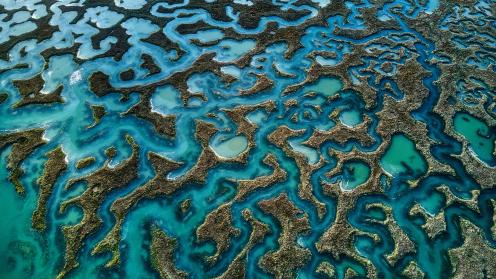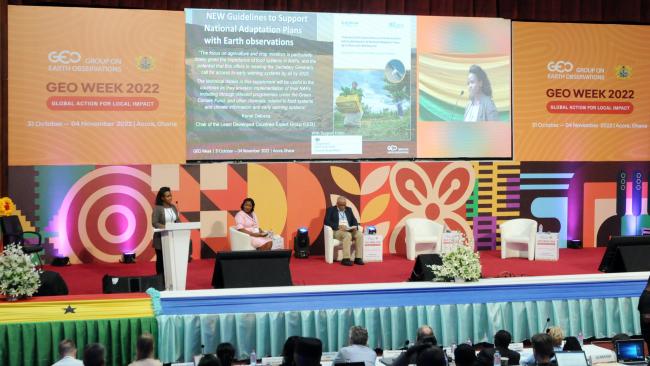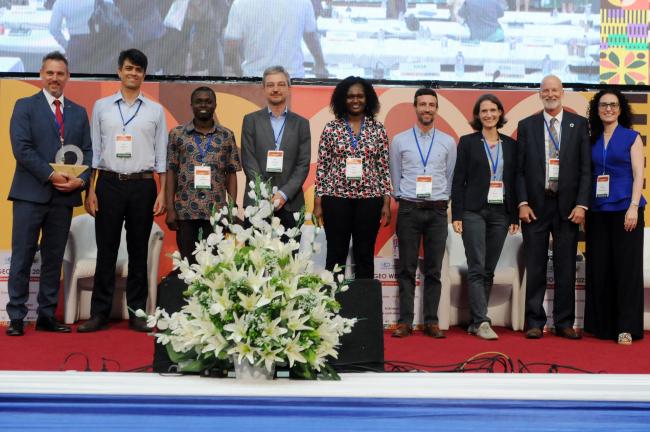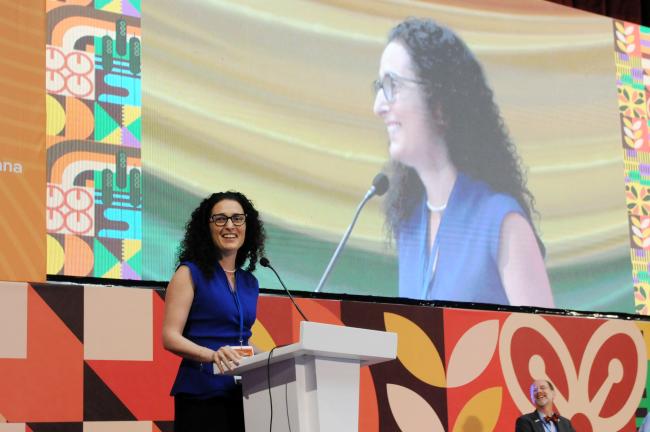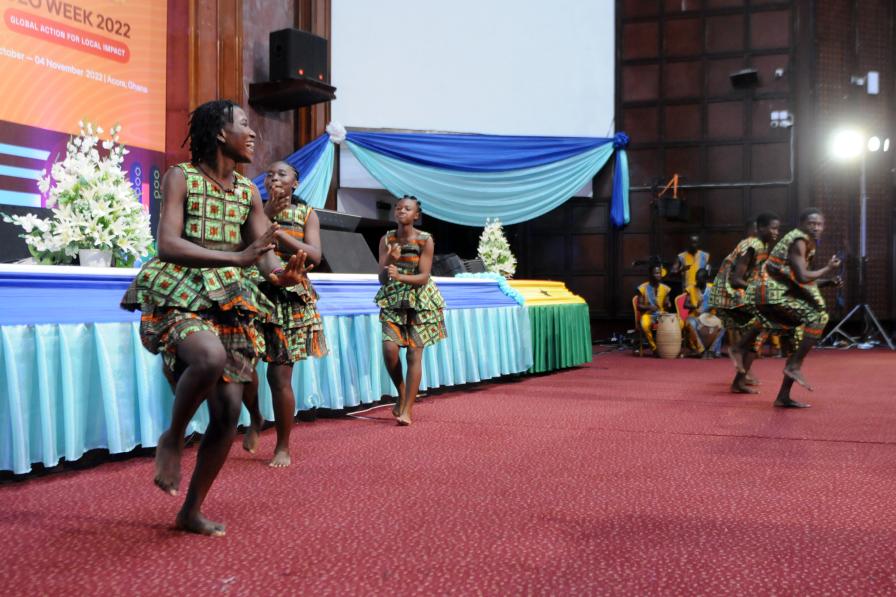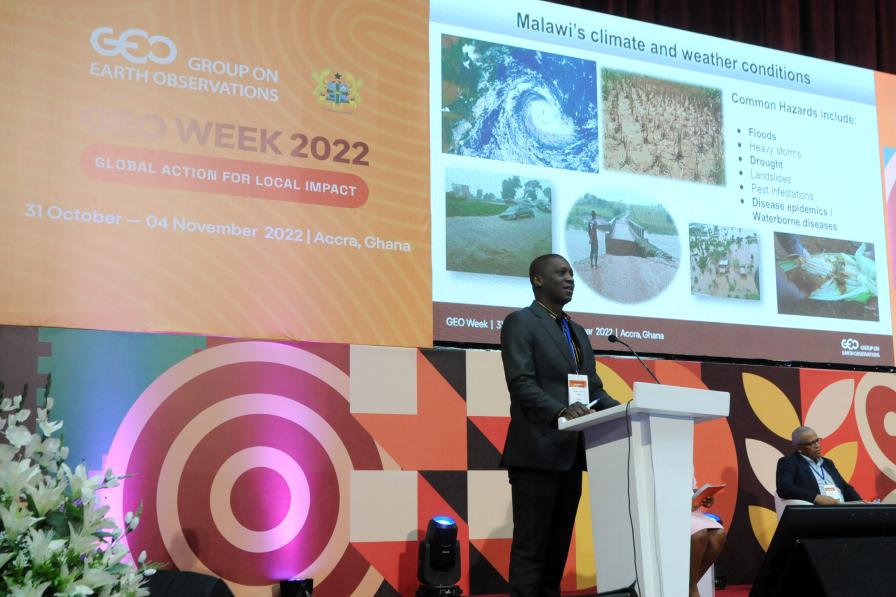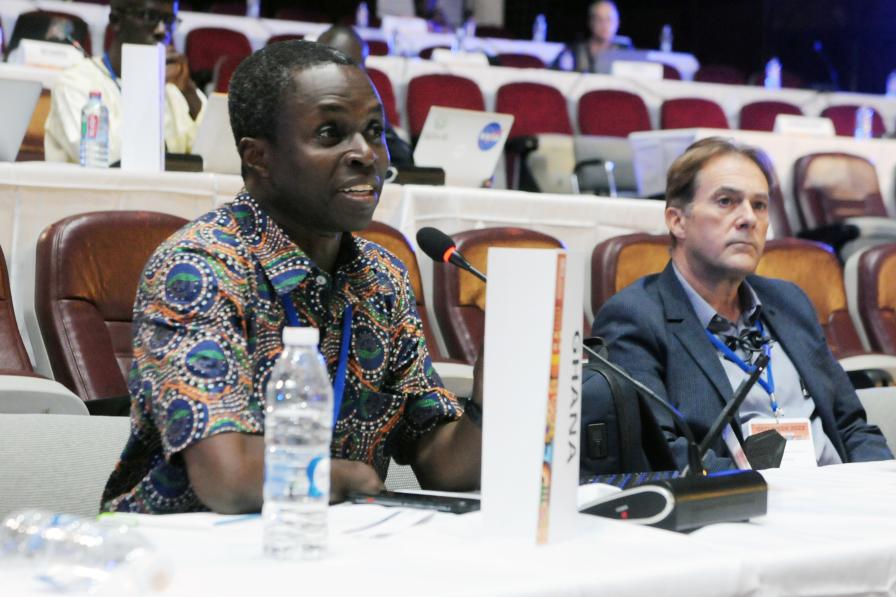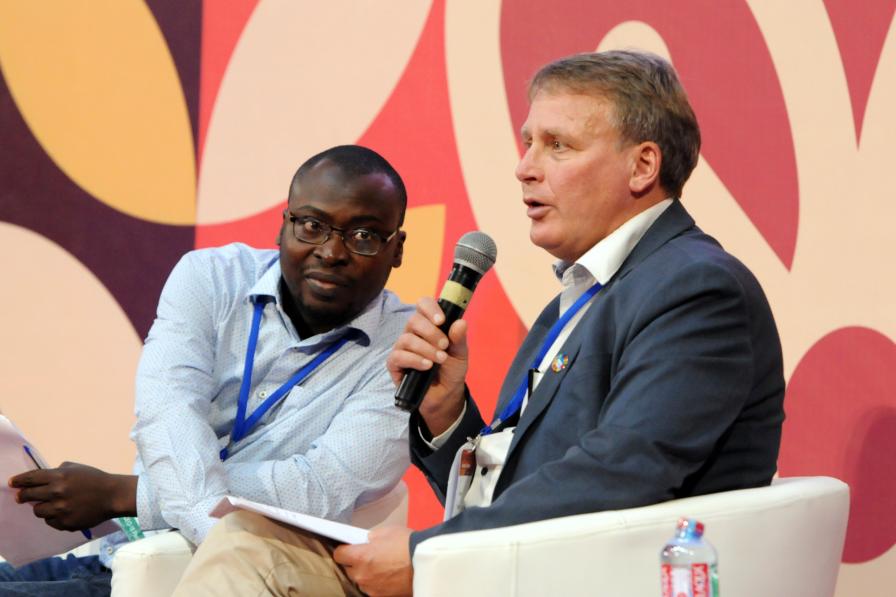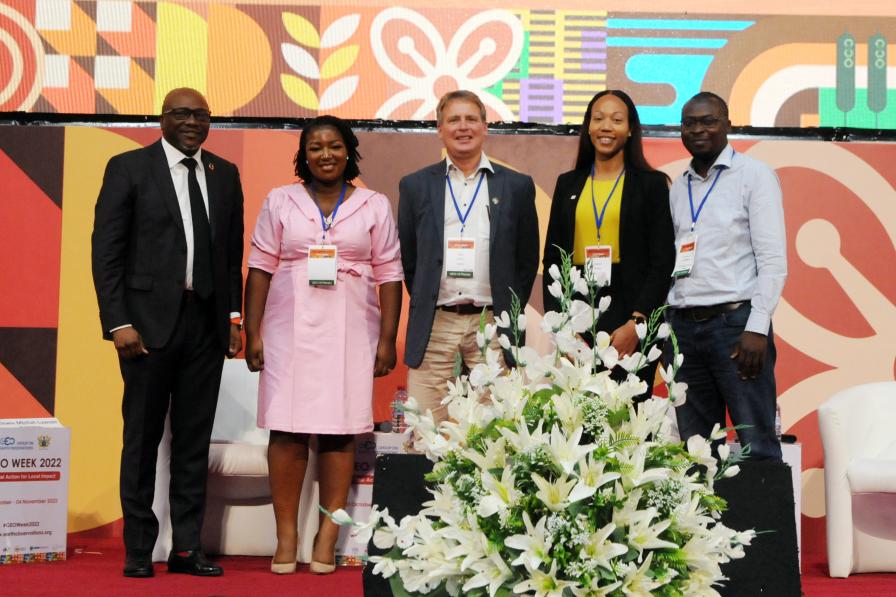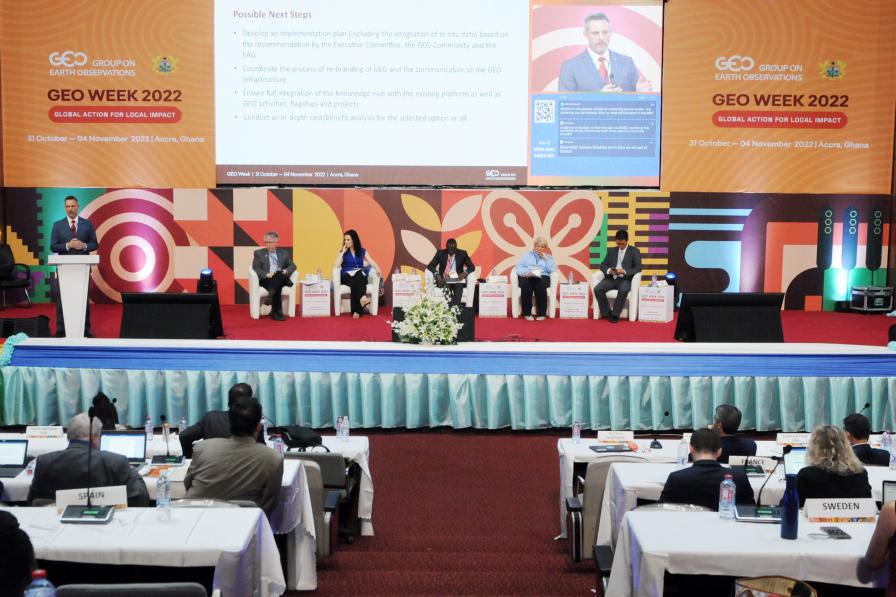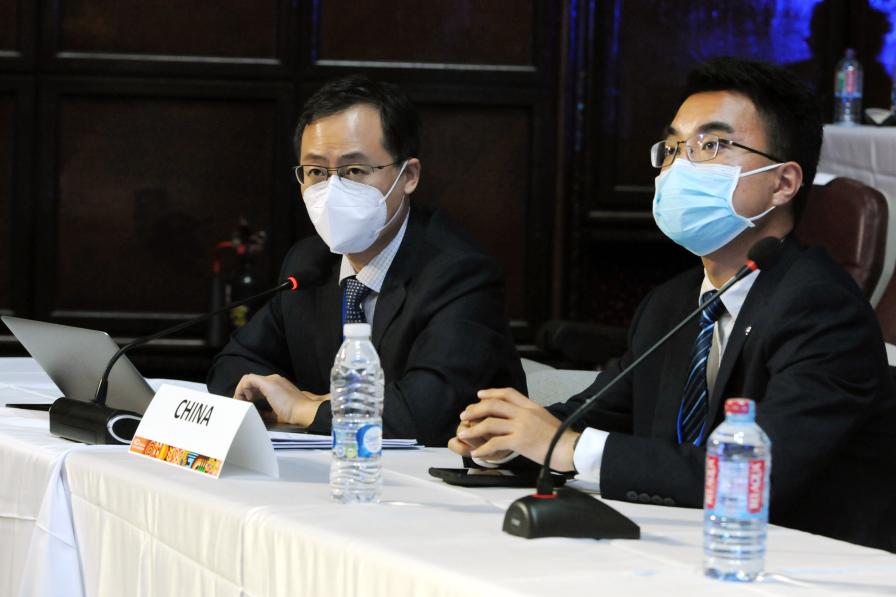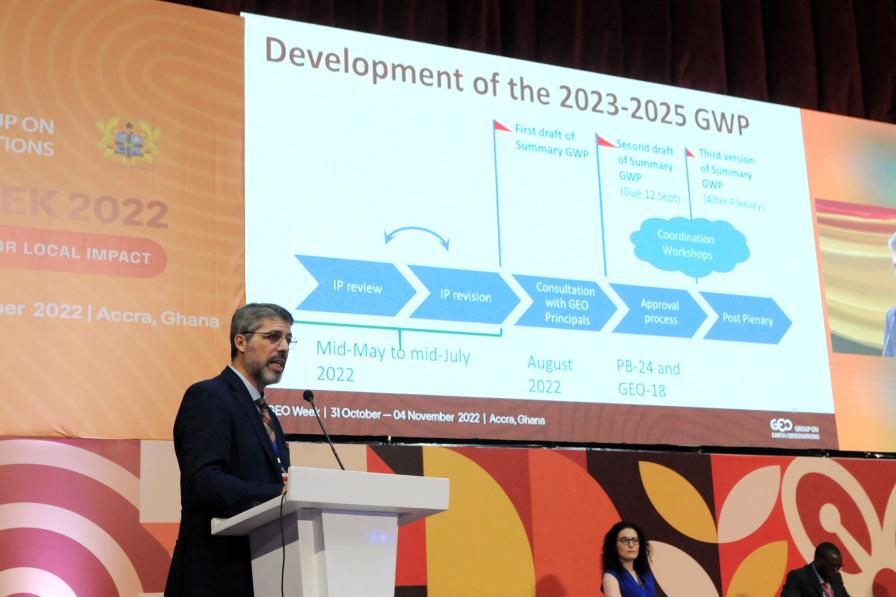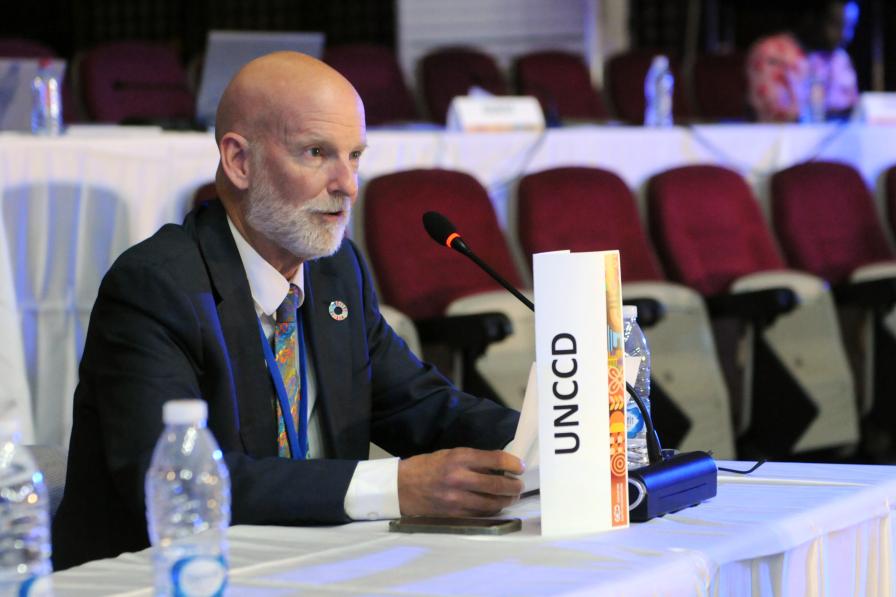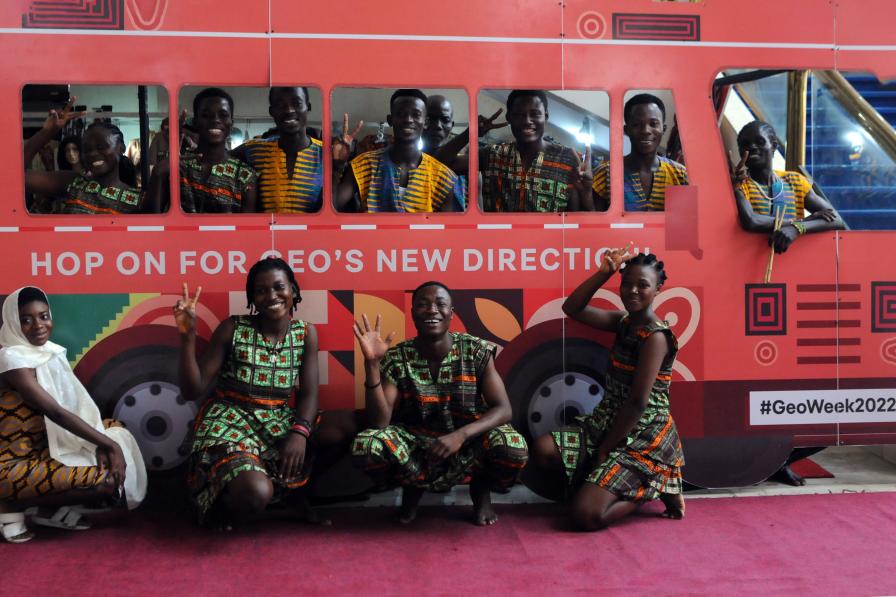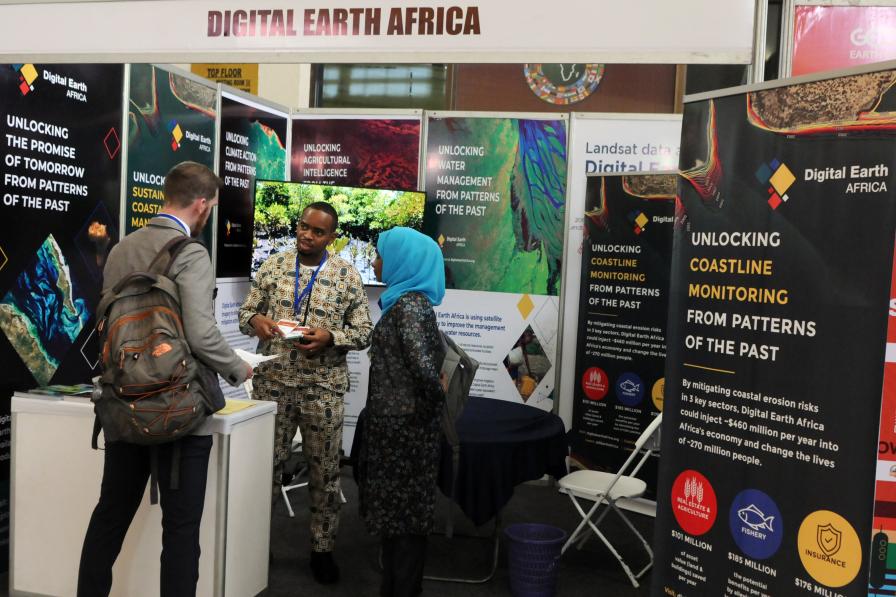On the last day of the GEO-18 Plenary, delegates considered key issues related to the overall future of the Group on Earth Observations (GEO). GEO is an intergovernmental partnership of more than 100 countries plus the European Commission, which promotes the extensive use of Earth observations (EO) data, information, and knowledge for research, policy, decisions, and action.
On Thursday, after an exhilarating performance by the Glory Days Choir, delegates engaged in panel discussions related to climate change adaptation, and promoting synergistic action to address climate change, biodiversity loss, and ocean-related issues through EO technologies.
In their discussions on the role of EO for national adaptation plans (NAPs), Paul Desanker, Manager of the Adaptation Programme, UN Framework Convention on Climate Change (UNFCCC) Secretariat, shared that adaptation is a progressive, learn-by-doing journey, underscoring that it is a global responsibility which connects to regional, national and local actions. He stressed the need for more EO data to directly support countries that are now facing extreme shocks more frequently.
Esther Makabe, Capacity Development Coordinator, GEOGLAM, announced the launch of the GEO Supplement to the UNFCCC NAP Technical Guidelines, addressing the integration of EO into agriculture and food security NAP formulation. On specific action points from the session, delegates agreed that:
- GEOGLAM will continue capacity development to design protocols for funding, while GEO Global Water Sustainability (GEOGLoWS) will develop supplementary technical guidance on NAPs;
- seed funding will be raised to ramp up EO-based monitoring systems for NAP implementation; and
- country delegations will raise the GEO profile within the UNFCCC in relation to NAP support as well as on Early Warning Systems (EWS).
In the panel discussion on “Collective Action on Oceans, Climate and Biodiversity,” delegates highlighted actions to promote integration including, useful product creation, extensive capacity building, partnerships exploration, increased knowledge support, GEO integrated projects development, and mainstreaming GEO work throughout high-level international environmental governance structures.
Looking ahead, delegates approved GEO’s Work Programme 2023-2025, with many lauding the addition of the GEO-Land Degradation Neutrality (LDN) initiative as the partnership’s newest Flagship. Barron Joseph Orr, Lead Scientist, UN Convention to Combat Desertification (UNCCD), reiterated the Convention’s commitment to assisting countries address land degradation and noted that the GEO community Flagship recognition and the generous financial contribution by the Government of Germany of EUR 6.2 million foresees a “truly bright” future for GEO-LDN.
During the closing session, Yana Gevorgyan, Director, GEO Secretariat, presented GEO Individual Excellence Awards with Jean Dusart, European Commission and Phoebe Oduor, Regional Centre for Mapping of Resources for Development (RCMRD). The winners were: Lynwill Garth Martin, for promoting mercury monitoring activities through the GEO Flagship GOS4M; Christina Justice, for building the GEOGLAM Crop Monitor for Early Warning; Neil Sims, for his excellence in leadership within GEO both for the GEO-LDN Initiative and in the Expert Advisory Group; and Michael Souffrant, for his work with GEOGLoWS global streamflow services.
In his closing remarks, Kwaku Afriyie, Minister of Environment, Science, Technology and Innovation, Ghana, stressed that “business as usual cannot be enough.” He highlighted the need to strengthen institutional capacities in developing countries to transform datasets into actionable information for decision-makers. Yana Gevorgyan invited all GEO members to “hop on the bus” towards a new direction for the GEO and welcomed delegates to the 2023 Ministerial Summit to be held in Cape Town, South Africa, in December 2023. GEO Lead Co-Chair Stephen Volz, National Oceanic and Atmospheric Association (NOAA), US, closed the GEO-18 Plenary at 6:05 pm.
The Executive Committee will meet in a closed meeting on Friday, 4 November 2022. A field trip is also planned to the Songor Lagoon Ramsar site for non-Executive Committee Members.
